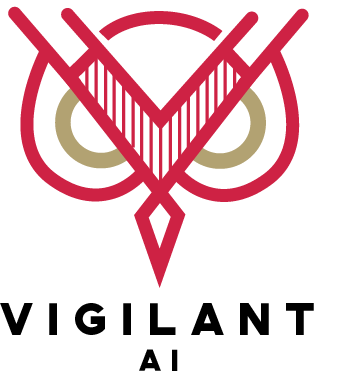Advances in automation, artificial intelligence (AI), and machine learning (ML) have created huge opportunities for auditors to deliver more thorough, higher-quality audits without increasing client costs.
Audit firms are already implementing AI tools and platforms to automate time-consuming and repetitive tasks such as data processing, management, and extraction. They see automation as a way to build a lasting competitive advantage by transforming how auditors make decisions and collect audit evidence.
Given these new capabilities, auditors may worry that AI will make them obsolete. But the technology will never replace auditors and their judgment. To effectively deploy AI and ML in the audit workflow, audit firms must keep the human-in-the-loop.
Understanding Human-in-the-Loop
The term human-in-the-loop is an important concept in AI/ML automation.
It refers to the requirement for human oversight, intervention, and feedback to review, control, and change the outcome of an automated process. It means that auditors and accountants must remain part of the process to ensure the machine is performing in the way that was intended.
A human-in-the-loop approach combines the efficiency, scalability, and accuracy of automated systems with the judgment, adaptability, and expertise of human operators. It is commonly used in applications such as auditing where automation can help review data at scale, but human judgment must still be exercised.
That’s because audits are not solely an analytical exercise. They involve subjective assessments to evaluate business risk, interpret ambiguous financial disclosures, and determine intent. Auditors must consider ethical standards, understand complex business structures, and engage with clients in ways that are not possible with automation alone.
Improving Auditor Performance With AI-Driven Automation
For these reasons, audits will never be 100 percent automated. The goal of automation and AI should not be to eliminate auditors but to allow them to scale to handle and review ever larger amounts of data. Human sign-off, governance, and control over what occurs in the audit process remain requirements.
AI and ML tools and platforms will make it possible to rethink the current limits of manual audit processes and enable new ways to use data at scale in the audit. The technology will enhance the ability to review and understand large amounts of data, leading to increased productivity and improved audit outcomes.
For example, automation can be used to handle repetitive and time-consuming tasks such as data collection, extraction, and risk detection. It can improve the verification of normal transactions and pinpoint transactions that require further human review. And it can provide additional insights to support decision-making and help auditors make stronger and more confident judgments.
It’s the role of the auditor to interpret this information within the broader context of the audit, investigate anomalies, and validate outputs from automation tools.
The Skills Needed to Benefit from AI-Driven Automation
Audit firms are facing a shortage of talent that is disrupting both current audit performance and the ability to successfully adopt new AI and ML tools and platforms. The audit methodology has not evolved to deal with the amount of data being created today, and auditor skillsets are still largely based on the paper processes of the past.
Going forward, audit firms will need to hire and develop capabilities in data management, automation, and data analytics.
Auditors do not need to become data scientists or software engineers to benefit from AI and ML platforms. But they should have a basic understanding of how AI models work, how they are trained, and how they arrive at their conclusions. They should recognize the risks of using models that lack transparency and know when human judgment should override automated results.
This foundational knowledge allows auditors to better evaluate the output from AI systems. It ensures they can identify potential inconsistencies and align the audit process with professional and regulatory standards.
The Auditor-in-the-Loop
The goal of automated systems is to make the analysis of data at scale as simple as possible for the auditor.
Automation allows auditors to build context faster, make more complete decisions, and understand far greater volumes of data than are possible using traditional manual processes. Keeping the auditor-in-the-loop ensures that automated systems are delivering on these promises. It allows firms to achieve the benefits of automation while maintaining the professional judgment and expertise of the auditor.
By automating data collection, management, and review, audit firms can perform more thorough, higher-quality audits without increasing client costs.
Discover the future of financial auditing: Start your free trial today and let Vigilant AI show you the difference with one month’s worth of your data, no commitment required. Contact us today.



Recent Comments